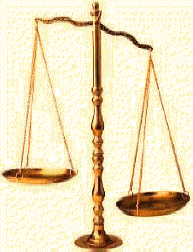
|
|
||
|
|
|
|
|
|
||

-73-
FOR BETTER OR WORSE:
The Income Tax
President Abraham Lincoln introduced the first graduated income tax in July 1862. In a booklet published by the Office of Internal Revenue dated January 1971, entitled Our Federal Tax System, and numbered 462, it is stated:
Finally in July 1862, President Lincoln signed into law the most sweeping revenue-producing measure in the nation's history to that time. The new law provided for progressive taxation for levies on incomes and for tax withholding.
The booklet then lays bare the
reason why the income tax was introduced: "Above all they insisted on
taxation as a means of regulating the economy."
The Constitution prohibits direct taxation; therefore,
when Congress passed a tariff law in the 1890's that provided for a
small income tax, the tariff law was challenged in the Federal courts
and was twice argued in the Supreme Court. The second time, in 1895, the
income tax instituted by President Lincoln was ruled unconstitutional
and was outlawed. The Court ruled any income tax constituted direct
taxation. As a result, the Income Tax Office of the Internal Revenue was
dismantled.
In 1909, President Taft was inaugurated in a time when
the government needed money. By ignoring the Supreme Court ruling,
Congress instituted another income tax. National repentance would
necessitate dissolving the graduated income tax which finances
everything from sodomy organizations to "studies" into the sex lives of
porpoises, and funding organizations founded to preserve the whale to
those dedicated to the destruction of children by aborticide.
The Responsibility of Magistrates
Like everyone else, magistrates
are responsible to subject themselves to the "higher powers." Since God
is the Author of all authority, and the sole Lawgiver (James 4:12) every
soul is responsible to acknowledge His authority by rendering cheerful
obedience. "Let every soul be subject to the higher powers." This is the
will of God. It was the willing subjection to God's authority that made
paradise of Eden, and that will make paradise in Heaven.
Since "there is no power, or authority, but of God,"
and "the powers that be are ordained of God" every soul is obligated to
subject himself to His government so long as he is a part of God's
creation. All breathe the air God has provided, all walk upon His earth,
and all live because of His gift of life that courses their veins.
The Authority of Magistrates
Since God is the Author of authority, all
who resist God-appointed authority contend with the Almighty, "and they
that resist shall receive to themselves damnation." "They that do such
things (i.e. cause sedition) shall not inherit the kingdom of God.”
(Galatians 5:19-21)
It was the good pleasure of God to identify the kind of
authority He has appointed: "Rulers are not a terror to good works, but
to the evil." Tyrants therefore have no legitimate authority. Their rule
is a mockery of the kindly rule of God. Calvin states " ...Dictatorships
and unjust authorities are not ordained governments" (Calvin, The
Epistle of Paul the Apostle to the Romans and to the Thessalonians,
281). He then proceeds to explain,
They are not to rule on their own account, but for the public good. Nor do they have unbridled power, but power that is restricted to the welfare of their subjects. In short, they are responsible to God and to men in the exercise of their rule (Calvin, 282).
God may chastise nations by
raising up tyrants to rule over them as in the times of Israel's judges,
but when His people humble themselves, and pray, and seek His face, and
turn from their wicked ways, He will hear from Heaven. He will forgive
their sins, and He will heal their land.
God-ordained rulers are a terror to evildoers, and are a glory to the
good. For this reason Godly people revere their authority, and yield
lawful obedience. But is it lawful to yield obedience to lawless rulers,
and to obey those laws that disregard the mandates of Heaven? Since
there is but one Lawgiver, it is not possible for lawful legislation to
contradict the Law of God. Is it in accordance with the Law of God and
consistent with His will for us to obey the Laws of men when they are
contrary to the Law of God? Peter addressed this issue twice in the book
of Acts. In Acts 4:19, Peter and John were curt in their response to the
rulers of the Jews: “Whether it be right in the sight of God to hearken
unto you more than unto God, judge ye." And again in chapter 5 the
apostles are arrested, and in verse 29 they answer the rulers of the
Jews, “We ought to obey God rather than men."
